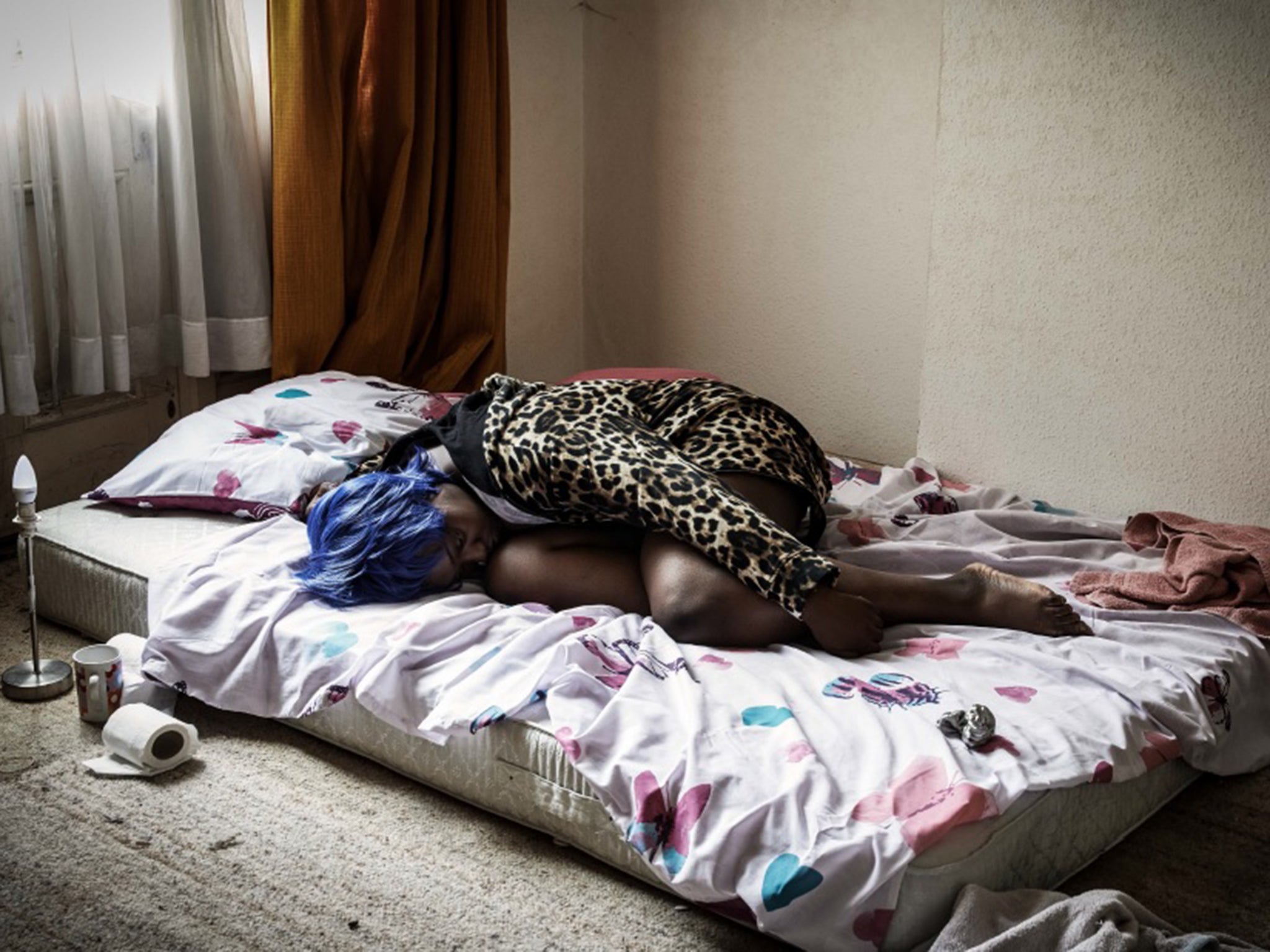Slavery was supposed to be abolished over 180 years ago – so why is it rife within modern Britain?
If we want to end slavery, we must disrupt the entire system that makes people vulnerable and enables their exploitation. We must change the way we do business, economics and politics


More than 180 years ago campaigners who had fought long and hard to abolish slavery heralded the end of the transatlantic slave trade. The end of slavery in the majority of the British empire was a cause for celebration. But sadly, the party was short-lived.
Some of those early freedom leaders knew the job was far from complete, which is why, in 1839 they founded the British and Foreign Anti-Slavery Society to continue their work against slavery in all its forms. Renamed in 1990s as Anti-Slavery International, the charity marks its 180th anniversary today, as slavery still persists – and in fact thrives – in Britain.
One example of a modern-day victim of slavery is Grace (her name has been changed) who was looked after by a woman in the community after her parents died in a car accident in her native Nigeria. The woman sent her to the UK, but instead of finding a promised job as a nanny, she was raped, beaten and forced into sex work. She was 15, terrified, and didn’t know anyone she could ask for help. Even though she wasn’t physically restricted from leaving, she was too scared to escape – she was trapped in slavery.
Sadly, Grace is one of many. Last year, nearly 7,000 people were referred to the UK authorities as potential victims. But it is widely thought that the real numbers are much higher – the National Crime Agency talks of potentially tens of thousands, all hidden away from the public eye. They are people who search for opportunities for better lives in the UK but end up trapped and exploited here in agriculture, construction, domestic work, car washes, nail bars, the sex industry, and often criminal enterprises.
In 2015 the UK government passed the Modern Slavery Act to tackle slavery in all its modern forms. However, the sad truth is that, although it was a laudable effort, the survivors of slavery are all too often treated like criminals and those who come from abroad are deported at the first opportunity.
Grace, pregnant through rape, finally managed to escape, but instead of being cared for and supported, was sent to a detention centre. Although she managed to briefly get released as her asylum application was being considered, she was again sent back to detention, this time together with her newborn baby. As she said, “I’ve never done anything wrong, but my daughter and I were being punished.”
Sadly, we hear stories like Grace’s regularly. Few make headlines, such as that of a woman who was trafficked into Britain at the age of three and sexually exploited for decades and was told by the Home Office that she was in the UK illegally, even though she didn’t even know where she was trafficked from.
And while survivors are often treated like offenders rather than victims, we are failing to catch the real criminals. The number of successful prosecutions of traffickers is woefully small. We are clearly failing in our fight against modern slavery.
I think it is because the nature of modern slavery in the UK has been widely misunderstood. People are attached to the old idea of slavery – a crime, perpetrated by evil individuals, who literally catch and control people. Catch the criminals, and slavery will be kept under control.
But that ignores a wider context, in which slavery is fuelled by factors such as debilitating poverty and discrimination, and reinforced by a system that ignores, and blames victims. It’s a potent formula.
People who are struggling with poverty and discrimination are often pushed into taking risky decisions to take opportunities that offer them a way out. When they get to the UK, they’re easy to manipulate: often they don’t speak English, don’t know the law and their own rights and have no one to turn to.
But there are also wider systemic problems that need to be tackled if we are serious about preventing slavery from continuing in the UK. The often deliberately hostile way we treat migrant workers unwittingly helps the traffickers. It is no surprise that people trapped in slavery are reluctant to come forward to the authorities with a complaint they have been trafficked if the authorities see them as offenders. And so that individual often becomes more reliant on traffickers.
Another systemic challenge is that, in the name of cheap goods and services, we all turn a blind eye to the exploitation of people in workplace. We rationalise that “if people don’t like their jobs, they can change them”. Perhaps this attitude helps explain why the Gangmasters and Labour Abuse Authority, which inspects workplaces for exploitative practices, is so poorly resourced that, for example, it only has one inspector for the whole of Northern Ireland.
If we want to end slavery, we must disrupt the entire system that makes people vulnerable and enables their exploitation. We must change the way we do business, economics and politics. We must think way beyond slavery and not accept exploiting people full stop, because slavery is at the extreme end of a spectrum of exploitation. We must create an environment where people who get exploited can count on our support and on the action against those who do the exploiting.
Marking our 180th anniversary puts ending slavery in a wider perspective and acts as a reminder that ending slavery will take time – any attempts to cut corners will end in failure. But it also reminds us that whatever the task, we can solve this problem with every person freed, every law and policy changed, bringing us a step closer to a world without slavery even if that aim looks distant now.
Anti-Slavery was founded by abolitionists who campaigned for ending the slave trade for over 60 years, so we’re not scared of the prospect of a long fight. We’re in it for the long haul and won’t stop until we deliver freedom to everyone, everywhere, always.
Jasmine O’Connor is the CEO of Anti-Slavery International
Join our commenting forum
Join thought-provoking conversations, follow other Independent readers and see their replies
Comments
Bookmark popover
Removed from bookmarks